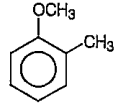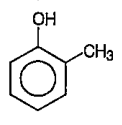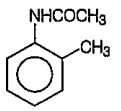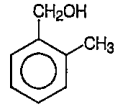Electrophilic reagents are
Electron pair donors
Lewis acids
Odd electron molecules
None of the above
The correct Answer is:B
Electrophilic reagents are Lewis acids.
Topper's Solved these Questions
- BASIC PRINCIPLES OF ORGANIC CHEMISTRYBook:DINESH PUBLICATIONChapter:BASIC PRINCIPLES OF ORGANIC CHEMISTRYExercise:SELECTED STRAIGHT OBJECTIVE TYPE MCQS
Explore 64 Videos
- BASIC PRINCIPLES OF ORGANIC CHEMISTRYBook:DINESH PUBLICATIONChapter:BASIC PRINCIPLES OF ORGANIC CHEMISTRYExercise:LINKED COMPREHENSION TYPE MCQS
Explore 10 Videos
- BASIC PRINCIPLES OF ORGANIC CHEMISTRYBook:DINESH PUBLICATIONChapter:BASIC PRINCIPLES OF ORGANIC CHEMISTRYExercise:Matrix Type Questions
Explore 2 Videos
- ALKALI EARTH METALSBook:DINESH PUBLICATIONChapter:ALKALI EARTH METALSExercise:Unit test-12
Explore 5 Videos
- BIOMOLECULESBook:DINESH PUBLICATIONChapter:BIOMOLECULESExercise:MATRIX - MATCH TYPE
Explore 8 Videos
Similar Questions
Assertion: Alkenes are easily attacked by electrophilic reagents.
Reason: Alkenes are unstable molecules in comparison to alkenes.
View SolutionAssertion: In strongly acidic solutions, aniline becomes more reactive towards electrophilic reagents.
Reason: the amino group being completely protonate din strongly acidic solution, the lone pair of electrons on the nitrogen is no longer available for resonance.
View Solution
Knowledge Check
Electrophilic reagent reacts firstly with
A B
B C
C D
D
Towards electrophilic reagents
Aethane is more reactive than ethyneBethen is less reactive than ethyneCboth are equally reactiveDreactivity of both cannot be predicatedTowards electrophilic reagents
AEthene is more reactive than ethyneBEthene is less reactive than ethyneCBoth have equal reactivityDThe reactivity of both cannot be predicted
Statement I: In strongly acidic solutions , anline becomes more reactive towards electrophilic reagents Statement II: The amino group being completely protonated in strongly acidic solution, the lone pair of electrons on nitrogen is no longer available for resonance.
View SolutionWhich of the following is an electrophilic reagent ?
View SolutionWhich one of the following is most reactive towards electrophilic reagent ?
View SolutionWhich one of the following is most reactive towards electrophilic reagent ?
View SolutionWhich one is most reactive towards electrophilic reagent
View Solution

